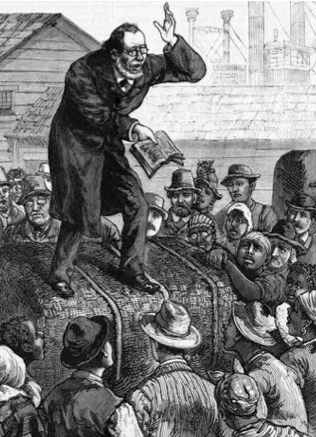
Lecture VI December 4, 1844
Public Domain Text Reformatted by Katie Stewart
.
After thirty posts in thirty days in January of this year, I knew my connection with the overlapping subjects of testing, education, learning, knowledge, and (so-called) merit was not severed or dissolved. They still strike me as important and I still want to try to stir up some good trouble in those regions. At that time, our theater company, Knowledge Workings Theater, was preparing for a reading of a new play, The Jester’s Wife, and then an Off-Broadway production, The Oracle, at Theater for the New City. Both went well and now before the next producitions start sliding out of the factory gates, the timing seems apt for a series of short references to other articles and reports that bump up against my personal history of testing
Starters? This piece on ‘ungrading‘ by Elisabeth Gruner struck me as both immediately useful and a steppingstone to the discussion that needs to happen: how do we move toward a state of ‘NO TESTS BUT FOR LEARNING’
Read it and let me know what you think.
Hello again. I read this piece when it was published and liked it a lot. A coherent, rooted-in-experience think piece, although not without provocation judging by the lengthy comments! I especially like the idea of incorporating “an essay reflecting on and evaluating their learning” into the final portfolio of graded work, which I note a student said meant they felt the assessor was “treating them like adults”. This chimes with the author’s comment that “students need time to reflect on their own goals for the class at the outset, at a midpoint, and again at the end of the semester, so they can actually see how they’ve developed”, which in turn reflects my own experience as a postgraduate research student and as an assessor of chartered and other professional qualifications. Indeed, this requirement for self-reflection is built into the qualifications I assess (which are not graded, candidates can only pass/fail), which I can only think is ‘A Good Thing’. So, yes, I concur that this paper is a useful, thought-provoking, read and should be read and considered by anyone faced with marking/assessing and/or grading. I also think it is quite brave to stick one’s head above the parapet like this, given how unstretchy the envelope tends to be in the world of assessment…
Ungrading is not really a new idea,and in a more perfect world it is what any teacher might hope for from students.However it gets sticky when you are teaching students who are many years academically delayed ( poor instruction,lack of motivation ,socio-economic ,nutritional reasons ) because if you take a functional 7th grade writer in the 11th grade and with great effort and commitment the student is able to produce 8th/9th grade work how do you explain the growth to your institution or the outside world in general . Due to student diligence and incremental progress an instructor might want to assign the student an A but in terms of expected learning /mastery of 11th grade writing goals how is the next teacher and the institution expected to interpret the grade ?
It is almost like we need a system which records academic effort and growth and a separate grade for demonstrable mastery of curriculum
Pingback: The Reaction Was Swift – Testing: A Personal History